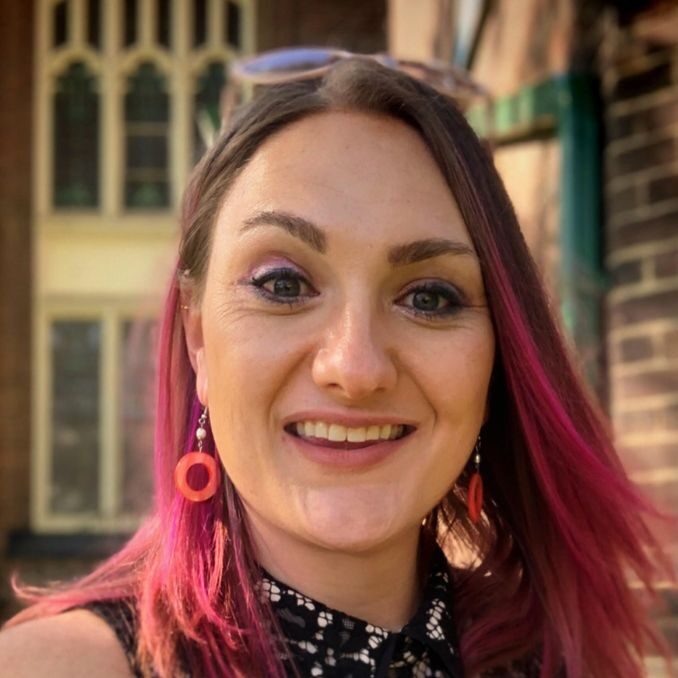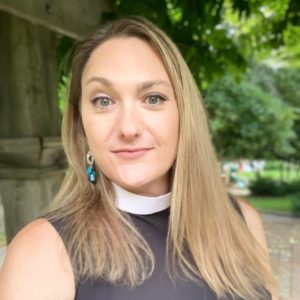By…
I am a woman because I do womanhood.
Junia Joplin shares her perspective on gender and the changing connotation of 'identity.'

By Junia Joplin
“To be fully alive is to act… I understand action to be any way that we can co-create reality with other beings and the Spirit… Action, like a sacrament, is the visible form of an invisible spirit, an outward manifestation of an inward power. But as we act, we not only express what is in us and give shape to the world, we also receive what is outside us, and reshape our inner selves.”
– Parker Palmer
Upon reading those words as quoted in a bell hooks book last spring, you might say I better understood my identity. But I won’t say that, because I’m not using that word like I used to.
Like other trans women, I will point out I don’t identify as a woman. Rather, I am a woman. Somehow, rightly or wrongly, identity has come to connote a kind of disembodied, decontextualized totem of sorts.
Maybe it’s because of that tired, transphobic joke that goes “I identify as an attack helicopter.” Now, claiming to be an attack helicopter is absurd, but claiming identity is unrelated to experience, that it’s somehow akin to playing make-believe, is harmful. Language evolves; sometimes it evolves because of prolonged abuse.
I came out and socially transitioned more than two years ago. What I mean when I say that is, as of June 14, 2020, I stopped living as a man in every way I could conceive. To borrow Parker Palmer’s language, I made it known that I was dedicating my aliveness and action to my womanhood. From that day forward, I have been working full-time with pretty much everybody in my life to co-create this reality.
“Even though I didn’t understand it at the time, I’ve been doing womanhood throughout my life.”
Yes, my action aligned with an inward power. It was, and is, a visible form of an invisible spirit. And I guess you could call that inward power, that invisible spirit, identity. But the action — the outward, world-shaping expression of what’s inside — is important to me.
I am a woman because I do womanhood. And even though I didn’t understand it at the time, I’ve been doing womanhood throughout my life.
Like when I was a child everyone perceived as a boy, but who constantly dreamed of being a girl.
Or when I was a teenager trying on dresses in secret.
Or that awkward moment when a Cracker Barrel server asked me “Can I top off your coffee, ma’am?” even though I hadn’t transitioned yet.
Or those times when, even though I wasn’t ready to come out to everyone yet, a handful of trusted friends greeted me with an inconspicuous “Hi, June.”
Or even when, in my ignorance, I spent decades unhappily accepting I was just a man who wanted to be a woman, but who couldn’t possibly be trans.
In my limited but experienced perspective, it’s easy now to affirm that I am a woman because I do womanhood. And while universalizing one’s experience can be problematic, I will offer that a woman is a person who does womanhood.
I will say that a woman is someone who womans.
When someone suggests I’m not a real woman, or gets up in arms about my chromosomes, or refuses to get my name or pronouns right, or insists it’s wrong for my kids to call me mom — and each of these things has happened to me this year — it does sting a bit. There is no place for this type of transphobia in the world.
But then, it’s also hard to take this stuff seriously.
Because my youngest child isn’t going to stand in front of his class and say “Actually, everybody, that extra Mother’s Day card I was so proud to make back in May was just a lie.”
And because that friendly couple who said, “You remind us of our granddaughter” that time I visited an out-of-town church didn’t pause to add “on second thought, we should walk that back until we’ve seen your birth certificate.”
And because the hospital nurse who mistakenly paged me using the boy’s name on my outdated records didn’t say “What brings you in today, Mr. Joplin?” when I sat down at her window. Instead, it was “I’m sorry, miss, but you’re not the person I just paged.”
And because the people who find me attractive — be they straight men, gay women, bisexual or pansexual folks — aren’t checking me out with the type of microscope they’d need to see my chromosomes.
“Some women — cisgender and transgender alike — will have their womanhood disputed no matter how they woman. This happens all the time, sadly.”
I know there are lots of ways a woman can dedicate her action to womanhood. I know there are lots of ways for a woman to woman. I know some of those ways are more societally acceptable, and some less.
I know gender is neither as binary nor as fixed as many of us have been taught.
And I know, even if none of the experiences of womanhood I’ve recounted had happened, I’d still be a woman.
Because even though what you do is an important piece of who you are, it’s not the only piece. And because no two women woman exactly alike.
Some women — cisgender and transgender alike — will have their womanhood disputed no matter how they woman. This happens all the time, sadly.
Sometimes it happens when a woman has broader-than-expected shoulders or shorter-than-expected hair. Sometimes it happens when a woman demonstrates assertiveness or strength. Sometimes it happens when a woman hasn’t transitioned as fully as she wants to, or as fully as others expect her to.
Not every woman can count on society’s help in rightly co-creating her reality. But when this happens, it’s not a failure at womanhood — it’s a failure of society.
I understand a woman to be a person who womans. Womanhood isn’t some academic tenet or philosophical kernel. It’s not an ethereal, imbued, deterministic spark. It’s not even a biological category — not exclusively, anyway. Womanhood is simply what women do.
Womanhood is what I do. I’m grateful — and let’s face it, privileged — to report that it is what my world cooperates with me in doing. It is a reality every single person in my life — except a few who are devoted to hateful, ignorant ideology — joins me in co-creating.
This longer-than-I-expected article notwithstanding, I don’t really want to dedicate much of my energy to elaborating on my womanhood. I guess I’m just too caught up in doing womanhood to care about debating womanhood.
To borrow words from that famous quote by that famous dancer Isadora Duncan, I’m not going to explain the dance; I’m just going to dance the dance.
Hey Siri… play Lizzo.

Junia Joplin
Junia Joplin (she/her) spent most of the first year of Covid speaking to faith communities around the world about authenticity, grace, and welcome. In March 2021, she joined the clergy team at the Metropolitan Community Church of Toronto – a vibrant, inclusive, and progressive faith community and human rights church. Junia was recognized among WOI’s Top 25 Women of Influence in 2021, and she is a past recipient of the Canada 150 Leadership award. A stirring communicator, Junia draws from her own experiences of vulnerability, perseverance, and joy to inspire others to take their next step of faith. She loves playing a good tune on her banjo, reading poetry, and waking up early enough to watch the sunrise.
By:…
Four Empowering Strategies to Overcome Imposter Syndrome
Women…
New Survey Reveals that Almost 80 per cent of Women Face Ageism in the Workplace
By:…
Adapting Leadership: Why Traditional Models Fall Short in Today’s Dynamic Workforce
You…
You Need to Meet: Dr. Dana Sinclair, a Performance Psychologist Helping Athletes and Professionals Excel
You…

